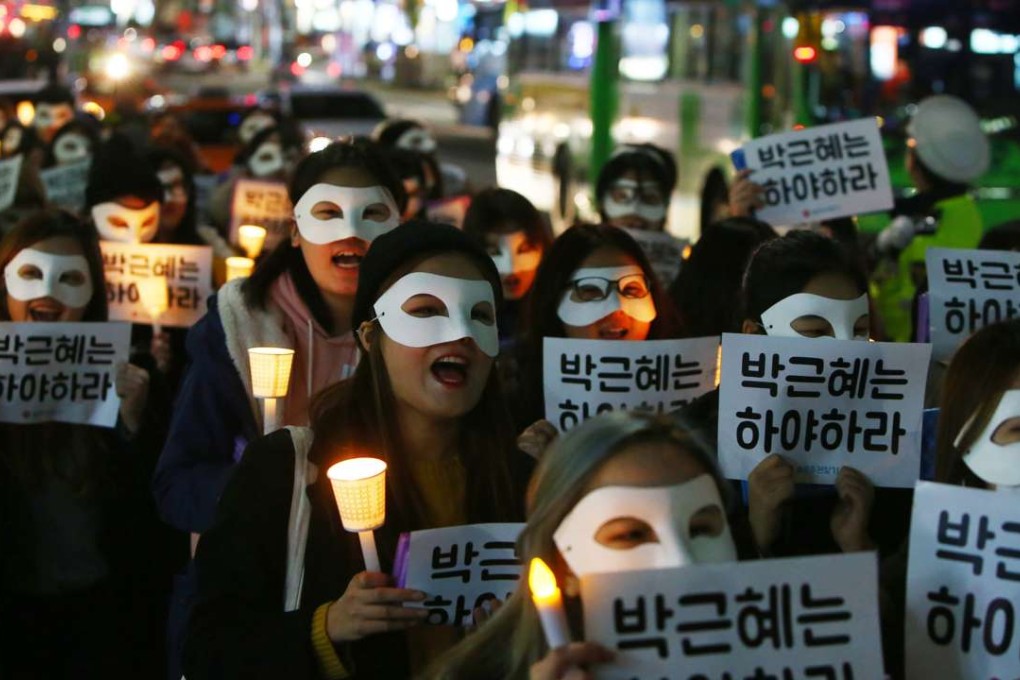South Korea’s umbrella movement? How protests against Park Geun-hye exposed cracks in a ‘slave’ democracy
Amid presidential scandal, frustrations surface over economic, social and gender inequalities, reminiscent of Hong Kong’s 2014 ‘umbrella movement’

Under a bright waxing moon, a band played traditional mudangchum music for an audience as they danced in front of a statue of Joseon-era admiral Yi Sun-sin. Couples took selfies with murals and artworks erected by local artists nearby. Elsewhere, volunteers walked the streets picking up refuse, while camping tents pitched along the Chonggyecheon stream swayed slightly to the breeze as occupants slumbered inside.
Last Saturday and Sunday, crowds of over 500,000 South Koreans assembled in Gwanghwamun and City Hall district in Seoul. If it wasn’t for bright red picket signs, large banners with the word “revolution”, and chants of “Park Geun-hye resign”, the lively scene might have seemed more like a festival than an entire nation in a state of protest.
South Korea’s Park cannot even count on her hometown to help overcome presidential scandal
Since last month, South Korea has been mired in its biggest presidential scandal since the nation’s democratisation almost three decades ago. President Park Geun-hye, daughter of the late former president and dictator Park Chung-hee, has been under public scrutiny for allegedly granting her friend and confidante, Choi Soon-sil, financial favours and unauthorised say over political matters.

Three major protests have taken place so far, each one larger than the last. At last week’s event, participants included labour unions, university student unions, farmer unions, left-wing parties, families of the Sewol ferry disaster victims, feminist groups and citizens from all walks of life.
The congenial atmosphere was reminiscent of the early days of Hong Kong’s own 2014 umbrella movement, when crowds of up to 200,000 camped out in Central over 74 days.